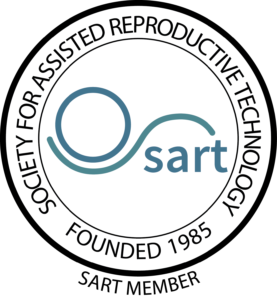Discover how a hysteroscopy can help patients become parents
Our Tennessee fertility clinic often uses hysteroscopy to diagnose and treat issues that are preventing a patient from conceiving. During this minimally invasive procedure, the doctor receives a comprehensive view of a woman’s uterus and corrects certain issues when necessary. Initial fertility evaluations help us determine whether a patient would benefit from this kind of surgical evaluation of infertility.
A hysteroscopy can help with diagnosing and treating several conditions
Our fertility specialists frequently utilize this technique when a patient requires a surgical evaluation of a condition affecting her ability to conceive. A variety of circumstances can lead to the need for this type of thorough evaluation.
- Abnormal bleeding. We often use a hysteroscopy to discover the cause of exceedingly long periods, a heavy menstrual flow or bleeding between periods.
- Uterine conditions. Our specialists might recommend a surgical evaluation to obtain an in-depth view of polyps, scar tissue, uterine malformations or fibroids.
- Recurrent miscarriage. When a woman has had two or more miscarriages, a surgical evaluation of infertility can be helpful in uncovering issues we cannot identify through bloodwork and ultrasounds.
- Congenital abnormalities. Our doctors can use this technique to discover uterine malformations that have been present since birth, such as a uterine septum.
The specialists at our Tennessee fertility clinic can also use this method to remove polyps, fibroids and scar tissue from an infection or past surgeries.
What can you expect during this procedure?
When more basic fertility evaluations reveal the need for a hysteroscopy, the doctor will discuss the specifics of the procedure with the patient. They will then schedule the procedure for the first week after the woman’s menstrual cycle.
The first step of this process involves the anesthesiologist sedating the patient. Next, the doctor passes a thin, lighted telescope through the vagina and cervix into the uterus. Then, he or she injects gas or fluid to expand the uterus and improve visibility.
From there, the telescope sends images to a screen where the specialist can view the uterine cavity and locate abnormalities. In some cases, the doctor uses additional instruments to perform a biopsy or treatment during this time.
This is a fairly quick, minimally invasive procedure that allows the woman to go home the same day. During the 24-hour recovery period, the patient may experience minimal bleeding and mild cramping.
If you’re experiencing fertility challenges, the skilled team at our Tennessee fertility clinic can help you determine whether you’d benefit from a surgical evaluation of infertility. Contact us to learn more about our fertility services or to schedule an appointment.






